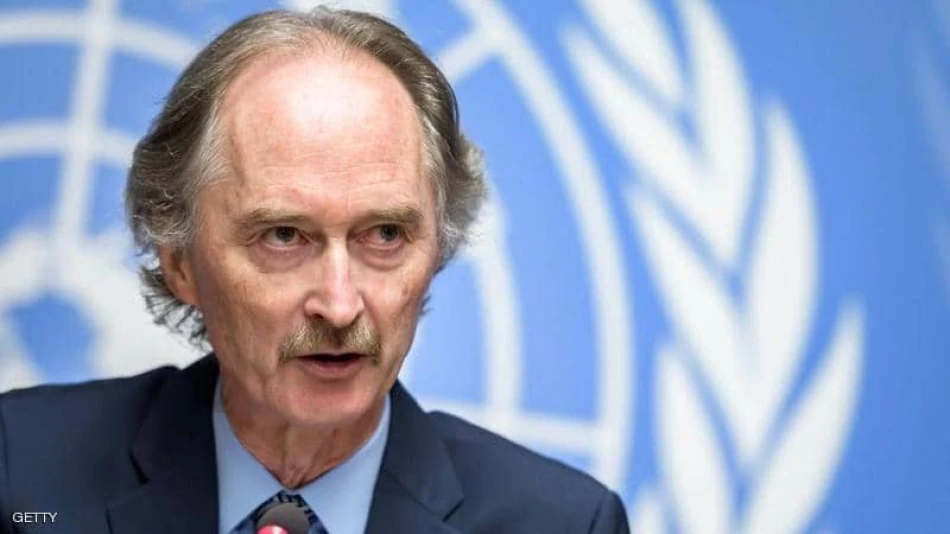
UN Envoy to Syria Resigns from Post Amid Ongoing Conflict
UN Syria Envoy Steps Down After Assad's Fall, Citing Mission Complete
Geir Pedersen, the UN Special Envoy to Syria, announced his resignation after nearly seven years navigating one of the world's most intractable conflicts. His departure comes just months after witnessing the historic collapse of Bashar al-Assad's regime in late 2024, marking the end of a diplomatic chapter that spanned Syria's most transformative period in decades.
A Strategic Exit After Historic Change
Speaking to the UN Security Council, the 69-year-old Norwegian diplomat revealed he had informed Secretary-General António Guterres of his intention to step down, citing "personal reasons." However, Pedersen's timing suggests a calculated decision to leave at a natural inflection point rather than a hasty retreat.
"Given the exceptional changes in Syria and the beginning of a new chapter, it was my duty and honor to remain in my position and help guide the UN's political efforts during the first crucial months of this historic period of political transition," Pedersen explained, referencing Assad's dramatic fall from power.
The Weight of Syria's Transformation
Pedersen's tenure, which began in October 2018, coincided with some of the conflict's most challenging phases. He inherited a war-torn nation where diplomatic solutions seemed increasingly elusive, yet he maintained engagement even as other international actors scaled back their involvement.
His decision to stay through the initial months of Syria's post-Assad transition demonstrates the significance UN leadership placed on maintaining continuity during this critical juncture. The fall of Assad's government represents the most dramatic geopolitical shift in the Middle East since the Arab Spring, creating both opportunities and risks that require careful international coordination.
Implications for Syria's Future
Pedersen's departure raises questions about the UN's approach to Syria's reconstruction and political transition. His successor will inherit a fundamentally different landscape—one where the primary obstacle to peace talks has been removed, but where new challenges around governance, security, and international recognition have emerged.
The timing also reflects broader shifts in international priorities. With Assad gone, the nature of UN involvement in Syria will likely evolve from conflict mediation to post-conflict stabilization and reconstruction support.
A Diplomatic Legacy in Transition
Pedersen expressed deep gratitude to the Syrian people, praising their "exceptional courage and humanity over the years." This acknowledgment underscores how the conflict's resolution ultimately came from internal dynamics rather than external diplomatic pressure—a humbling reality for international mediators.
His resignation marks the end of an era in Syrian diplomacy, but also the beginning of a new phase where the focus shifts from ending conflict to building sustainable peace. The next UN envoy will face the complex task of supporting Syria's transition while managing competing international interests in the country's future.
Most Viewed News

 Sara Khaled
Sara Khaled






